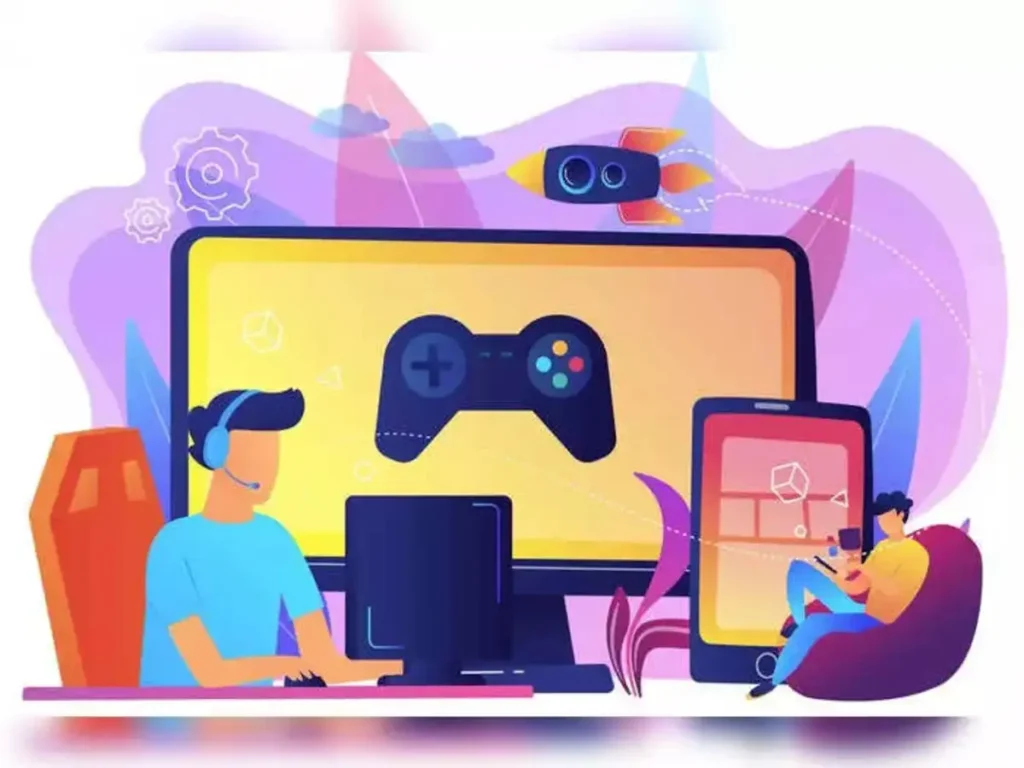Games have been an integral part of human culture for centuries. From ancient board games to modern video games, these activities have evolved significantly, but they continue to offer entertainment, challenges, and the opportunity for people to engage with each other in unique ways. But what exactly are games? Why do we enjoy them? And how do they impact our lives, both positively and negatively?
This article explores the world of games, their various forms, and the ways in which they influence different aspects of our lives. We will delve into the types of games, their benefits, and even discuss some concerns associated with gaming. We will also provide insights into frequently asked questions and conclude with a key takeaway to summarize everything we’ve discussed.
Key Takeaways
- Games come in various forms, including video games, board games, sports, and puzzles, each offering unique benefits.
- Playing games can improve cognitive skills, promote social interaction, reduce stress, and provide physical benefits.
- Excessive gaming can lead to negative outcomes such as addiction, social isolation, and a sedentary lifestyle.
- It’s important to balance gaming with other life activities to avoid potential harms.
- Games have a significant cultural and psychological impact, providing both entertainment and personal development opportunities.
What Are Games?
Games, in their most basic form, are structured activities that are designed to entertain or challenge participants. They often involve rules, goals, and objectives, and can be played individually or with others. Whether it’s a solo experience or a social event, games have the power to bring people together and keep them engaged in meaningful ways.
Types of Games
Games come in various shapes and forms, each designed to appeal to different interests, skill levels, and ages. The most common types of games include:
1. Video Games
Video games are perhaps the most widely known and popular form of entertainment today. They can be played on a variety of platforms, such as PCs, consoles, or mobile devices. They range from simple, casual games like “Candy Crush” to more complex, narrative-driven games like “The Last of Us” or “The Witcher 3.” Video games often incorporate graphics, sound, and interactive gameplay to immerse players in a virtual world.
2. Board Games
Board games have a long history and remain a beloved form of social interaction. Examples include classics like Monopoly, Scrabble, and Chess. These games are typically played on a flat surface with a set of pieces or cards and involve a mix of strategy, chance, and interaction with other players.
3. Sports
Sports are physical games that often involve competition between two or more individuals or teams. They include activities like soccer, basketball, and tennis. Sports games can be played professionally, as a hobby, or in a casual, recreational setting. They not only provide physical exercise but also teach teamwork, leadership, and perseverance.
4. Card Games
Card games such as Poker, Bridge, and Solitaire are popular both in physical and digital formats. They vary in complexity, from simple games like Go Fish to strategy-based games like Magic: The Gathering.
5. Puzzle Games
Puzzle games require players to use logic and reasoning skills to solve problems. These games include crossword puzzles, Sudoku, jigsaw puzzles, and escape room challenges. They can be both relaxing and mentally stimulating.
6. Role-Playing Games (RPGs)
Role-playing games allow players to assume the roles of characters and embark on fictional adventures. These can be played in person (such as tabletop RPGs like Dungeons & Dragons) or in video game format, like “Final Fantasy” or “Skyrim.” RPGs often have in-depth storylines and character development.
How Do Games Impact Our Lives?
Games are much more than just entertainment. They have profound effects on our physical, mental, and social well-being. Below are some ways games can impact our lives:
1. Cognitive Development
Many games, especially puzzle and strategy games, help develop cognitive skills such as problem-solving, critical thinking, and memory retention. Video games, in particular, have been shown to improve spatial awareness, multitasking abilities, and reaction time. Games often challenge the brain to think in new ways and adapt to different scenarios.
2. Social Interaction
Games are a great way to foster social interactions. Whether playing in person or online, games encourage communication and teamwork. Multiplayer video games allow players to connect with people from different parts of the world, fostering a sense of community. Similarly, board games and sports promote face-to-face interaction, which can strengthen relationships and build trust.
3. Emotional Benefits
Playing games can provide a healthy outlet for stress and frustration. Many people find playing video games or engaging in other types of games a way to unwind after a long day. Games also offer a sense of accomplishment and reward, especially when players overcome challenges or win. The immersive nature of many games can be a temporary escape from the real world, providing a sense of control and achievement.
4. Physical Benefits
While video games and board games may seem sedentary, many modern games (such as those using motion-sensing technology like the Wii or VR games) encourage physical activity. Sports, of course, require physical engagement and can improve cardiovascular health, strength, and overall fitness. Competitive games like soccer or basketball also promote healthy lifestyles and encourage team collaboration.
5. Stress Relief and Mental Health
Engaging in games can help alleviate stress and improve mental health. For example, action-packed video games provide an adrenaline rush, while puzzle games can offer a meditative experience. Studies have shown that playing games can help improve mood, reduce anxiety, and even assist with rehabilitation in some cases.
Are There Any Negative Aspects to Playing Games?
While games provide numerous benefits, there are also potential drawbacks that need to be considered. Excessive gaming or the wrong types of games can lead to negative consequences for individuals and society.
1. Addiction
Video game addiction is a growing concern, particularly with online multiplayer games that encourage long play sessions. Players may find themselves spending hours in front of screens, neglecting their responsibilities, relationships, or physical health. Game addiction has been recognized by the World Health Organization as a mental health condition.
2. Social Isolation
Though multiplayer games can promote social interaction, they can also lead to social isolation. Individuals who spend excessive amounts of time gaming might neglect in-person relationships or family time, choosing virtual connections over real-life interactions.
3. Violence and Aggression
Certain video games, particularly violent ones, have been linked to aggressive behavior, particularly among young players. However, research on this topic is mixed, with some studies suggesting no significant correlation between violent video games and violent behavior. Nevertheless, parents and guardians should be mindful of the content their children are exposed to.
4. Sedentary Lifestyle
Many games, particularly video games, can contribute to a sedentary lifestyle if played excessively. Prolonged periods of inactivity can lead to health issues such as obesity, cardiovascular problems, and muscle degeneration.
Conclusion
Games, whether they are video games, sports, board games, or puzzles, have always played a vital role in human culture. They provide us with entertainment, social interaction, mental stimulation, and even physical exercise. While there are concerns related to excessive gaming or the potential negative effects of certain game types, when played in moderation, games can offer a wealth of benefits.
Games are much more than mere pastimes; they influence our cognitive, social, and emotional well-being in significant ways. As gaming technology continues to evolve, it’s essential for individuals to find a healthy balance between gaming and other life activities.
FAQs
1. What Are the Benefits of Playing Video Games?
Video games can improve cognitive skills, such as problem-solving and decision-making. They can also enhance hand-eye coordination, boost memory, and help players develop multitasking abilities.
2. How Do Games Improve Social Skills?
Games promote communication, teamwork, and collaboration. They help players build relationships and learn how to work together towards a common goal, which is particularly true for multiplayer games.
3. Can Playing Games Help with Stress Relief?
Yes, games provide a fun and engaging way to de-stress. Certain games, especially action and adventure games, offer an emotional release, while puzzle games provide a more relaxing mental challenge.
4. Are All Games Beneficial?
Not all games are equally beneficial. While many games have cognitive and social advantages, others may contribute to negative outcomes such as addiction, social isolation, or exposure to violence.
5. How Much Gaming is Too Much?
Moderation is key. Experts recommend balancing gaming with other activities like physical exercise, socializing, and work or school commitments. When gaming starts interfering with daily life responsibilities, it may be a sign of overindulgence.
6. Can Video Games Help Improve Education?
Some educational games are designed to enhance learning and help with subjects like math, language arts, and history. Games can make learning more engaging and interactive, encouraging children to study in a fun and immersive way.
7. What Types of Games Are Best for Kids?
Age-appropriate games that promote creativity, teamwork, and critical thinking are best for children. Games like puzzles, board games, and educational video games can help develop important skills.



